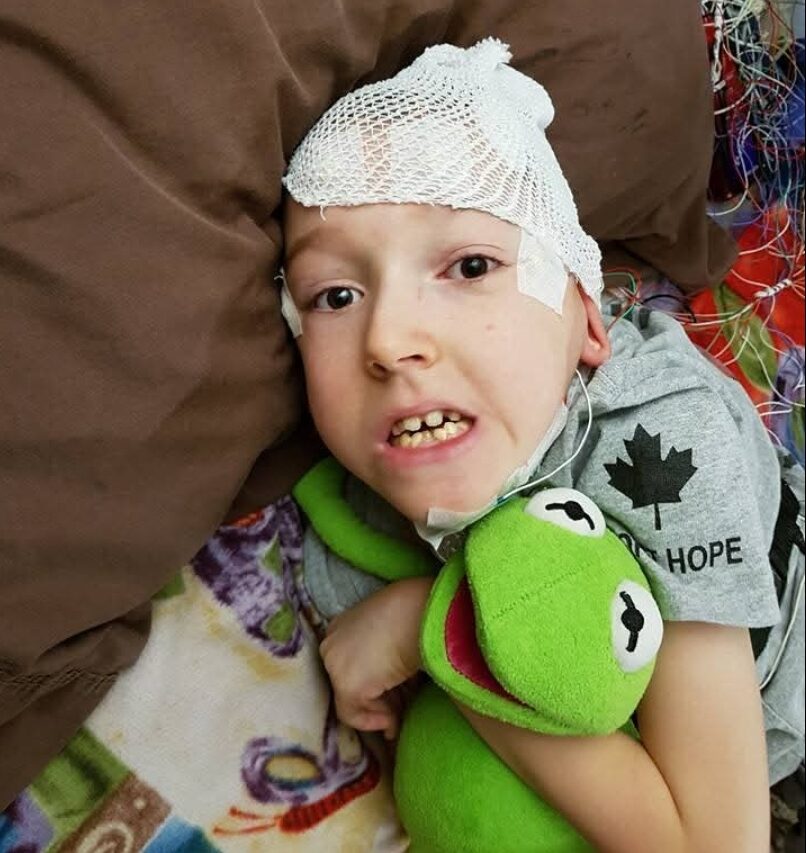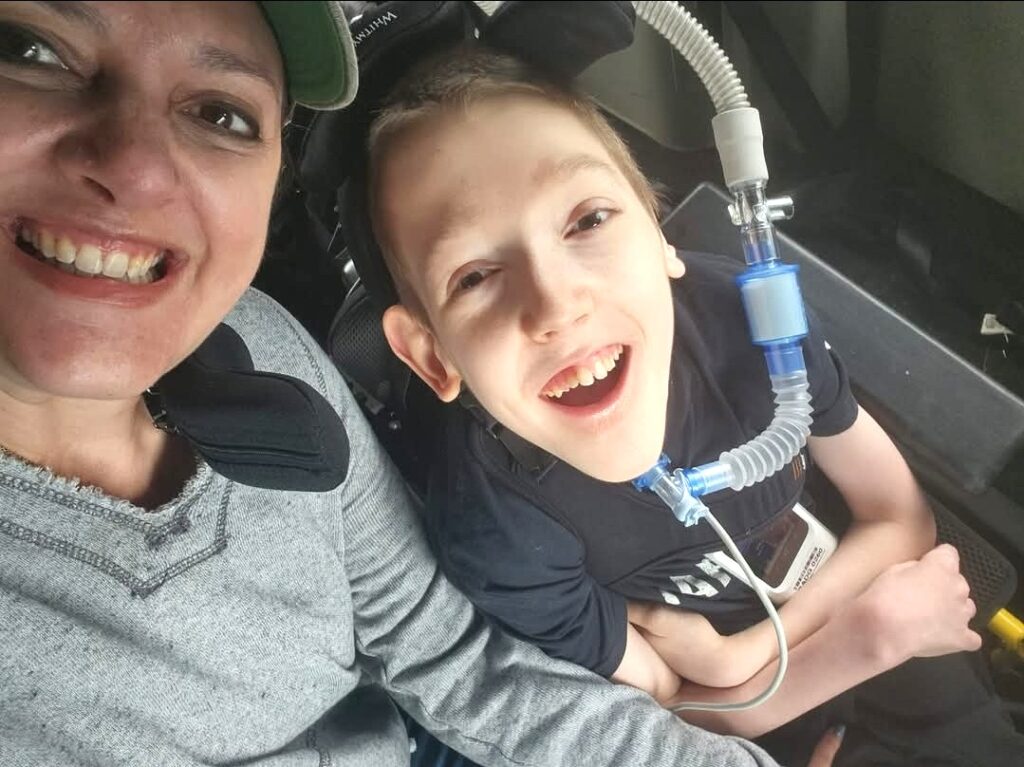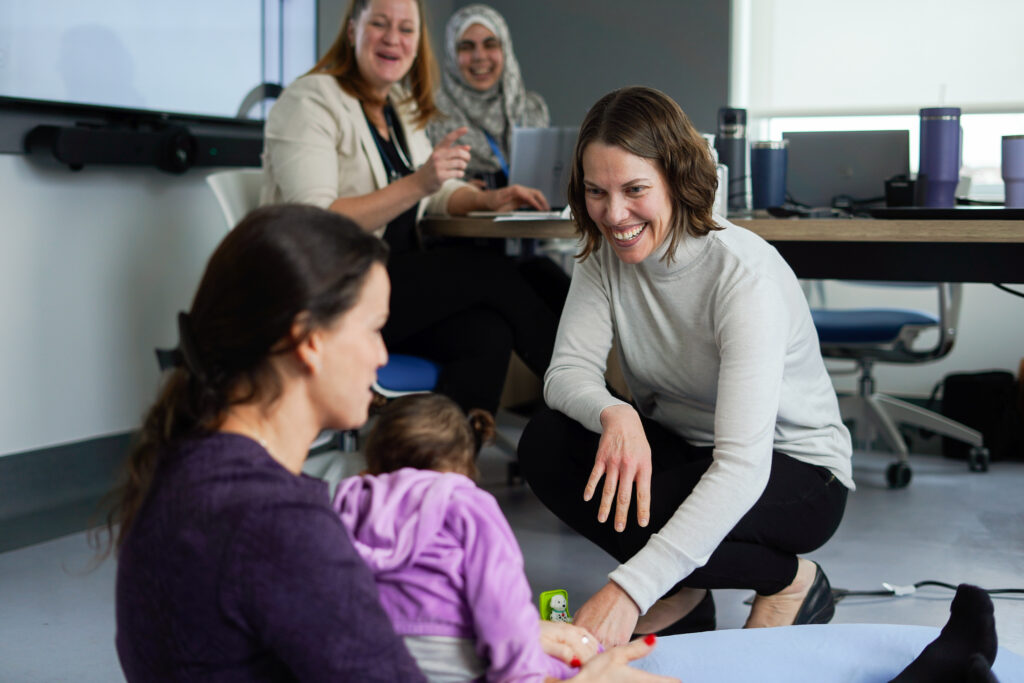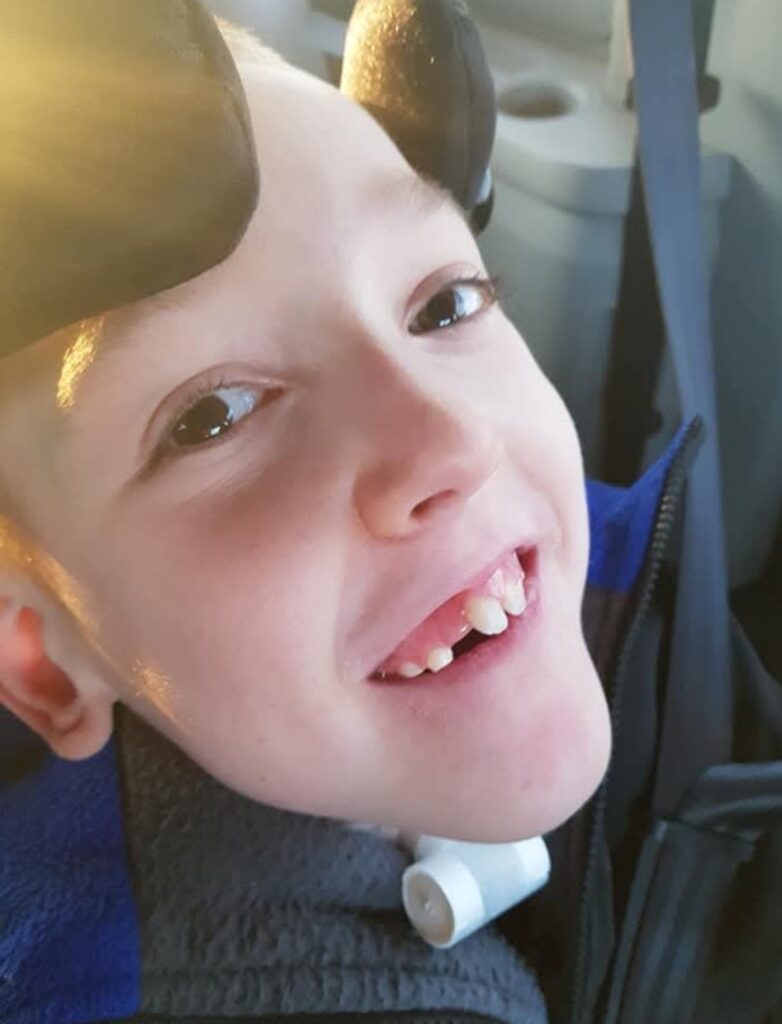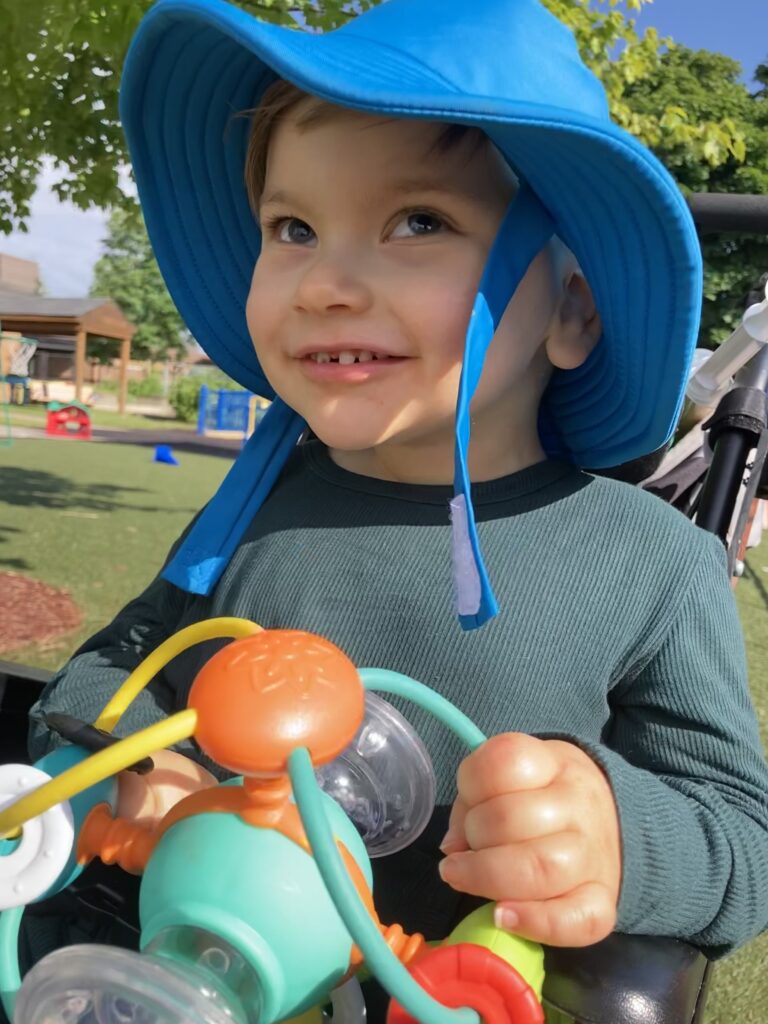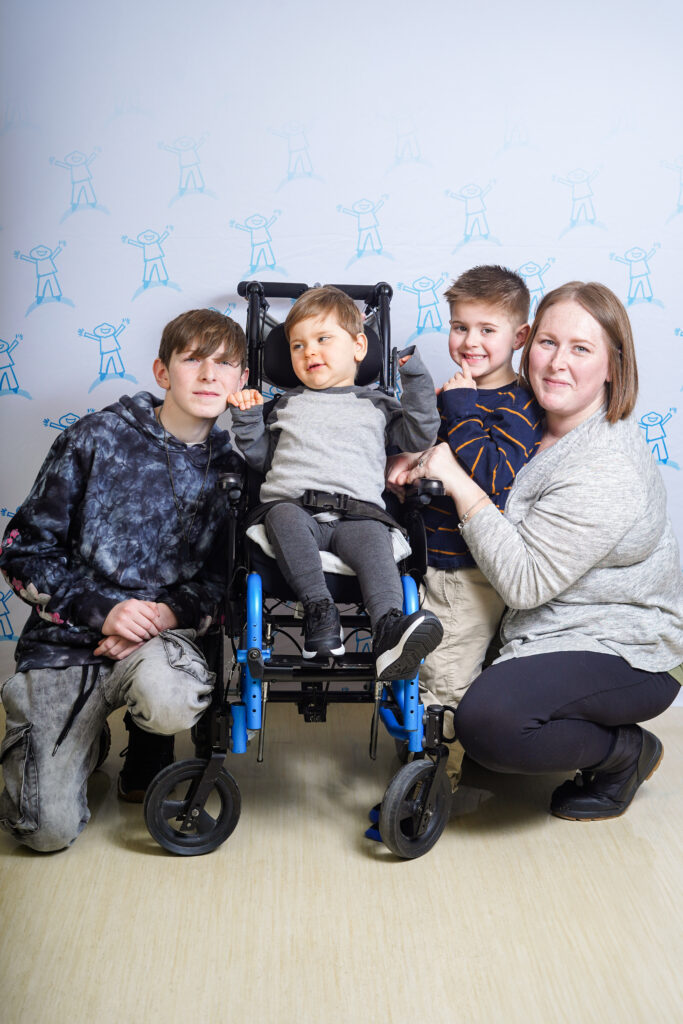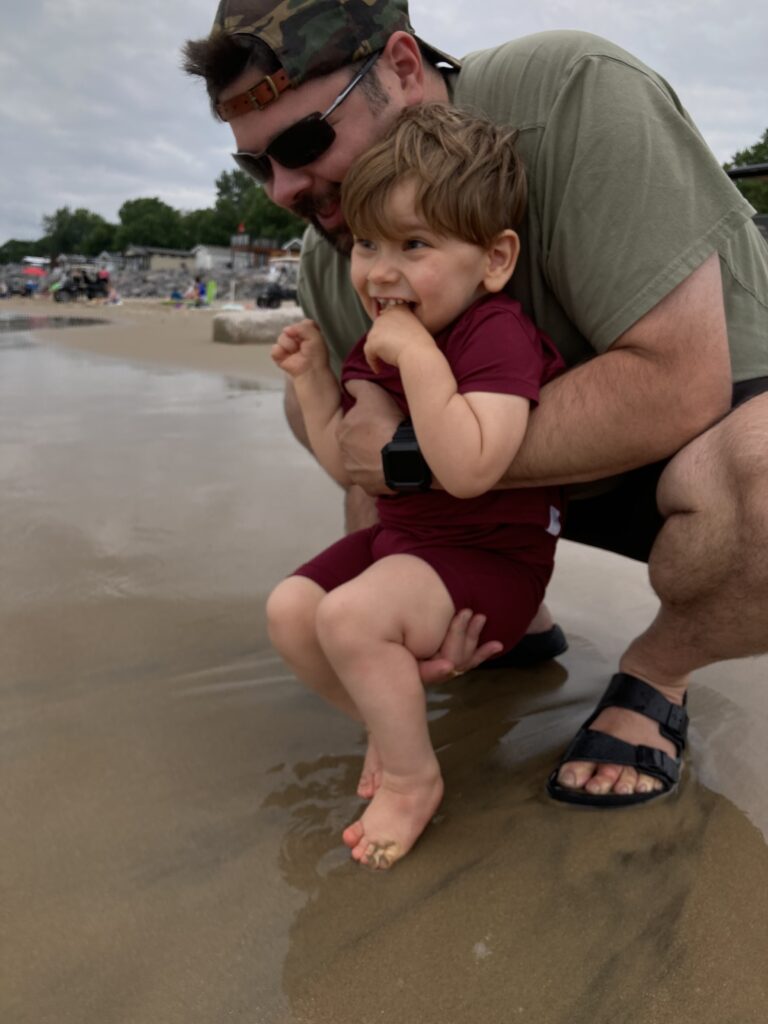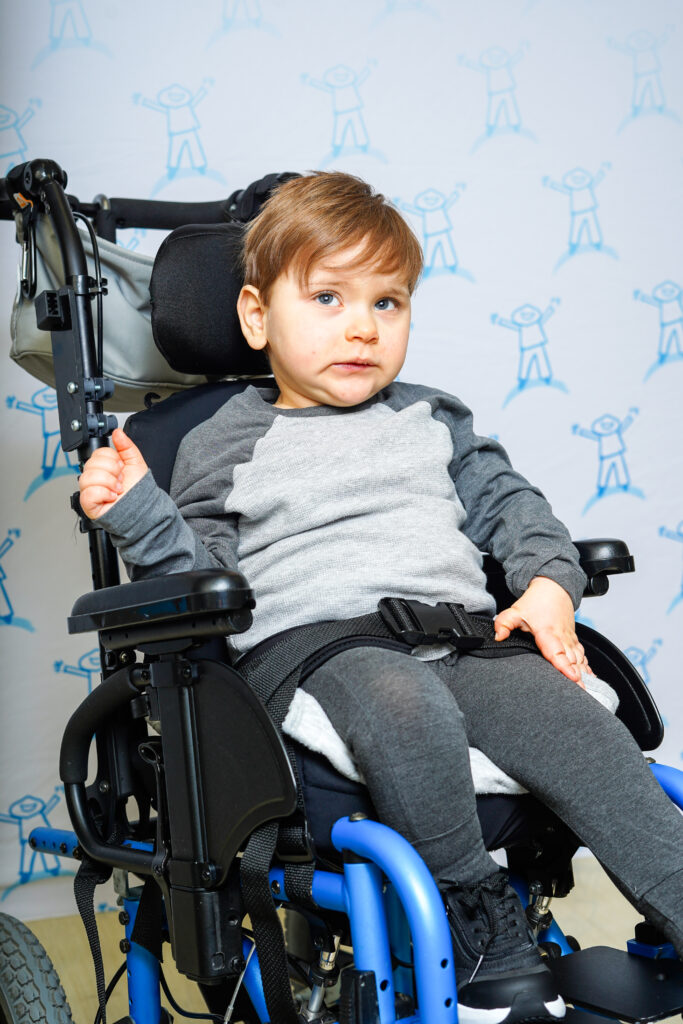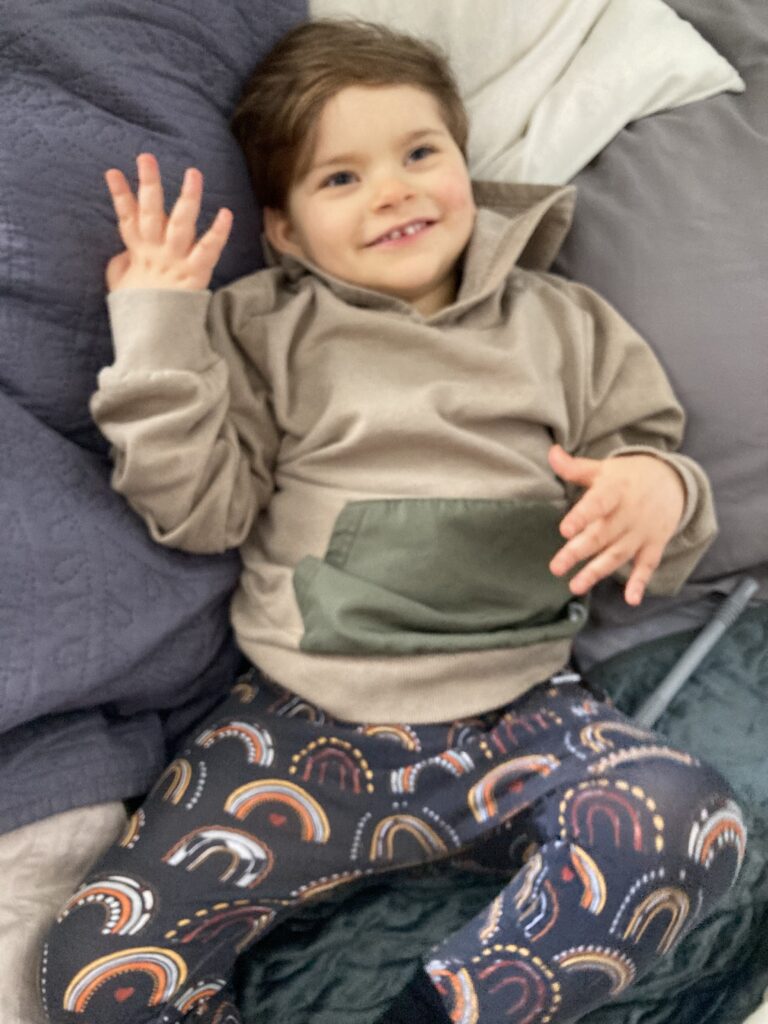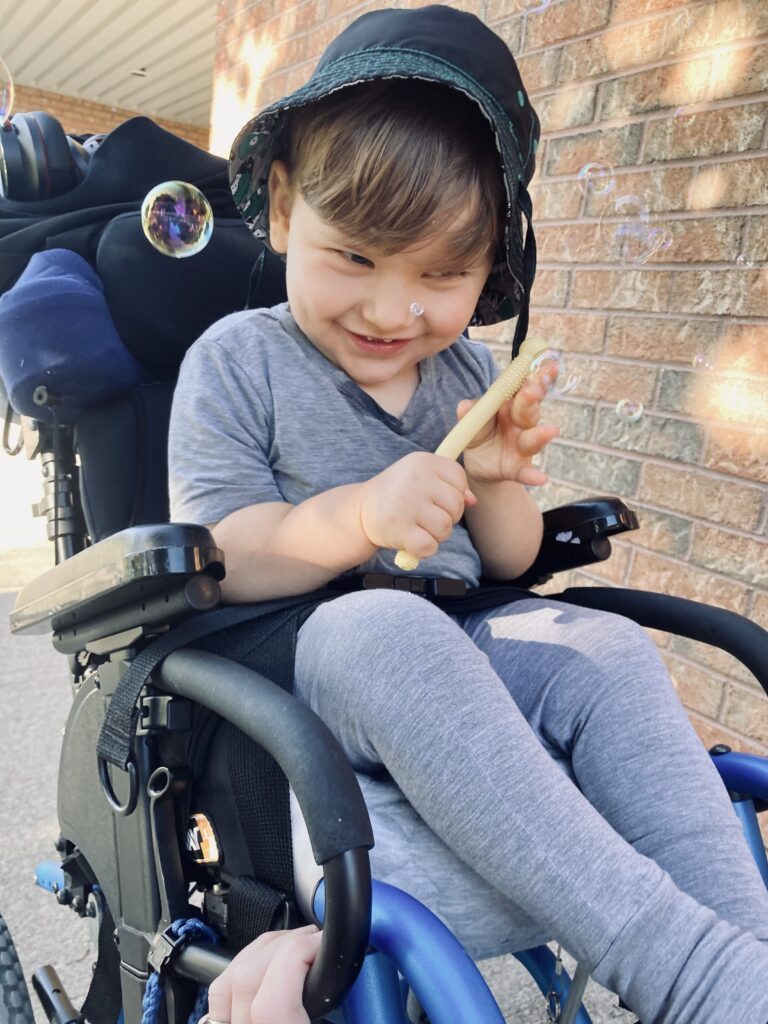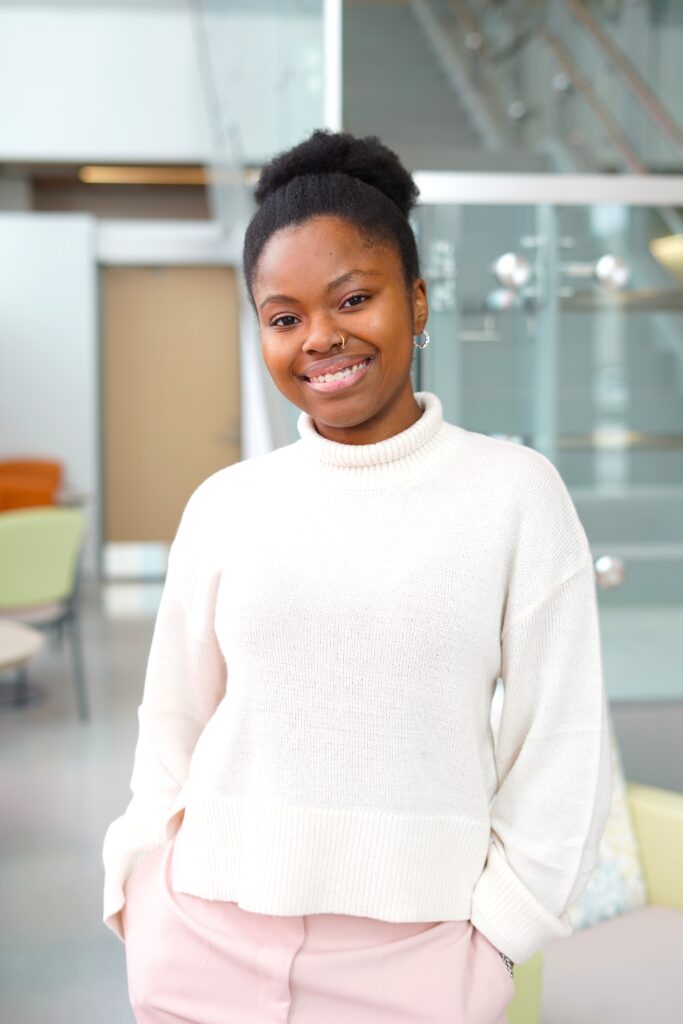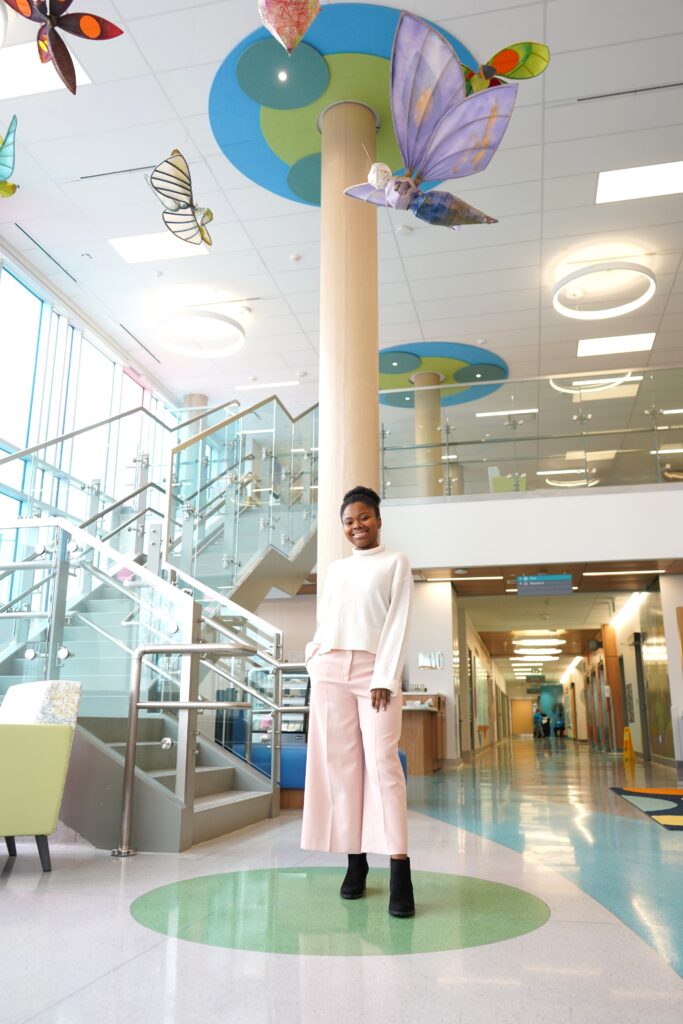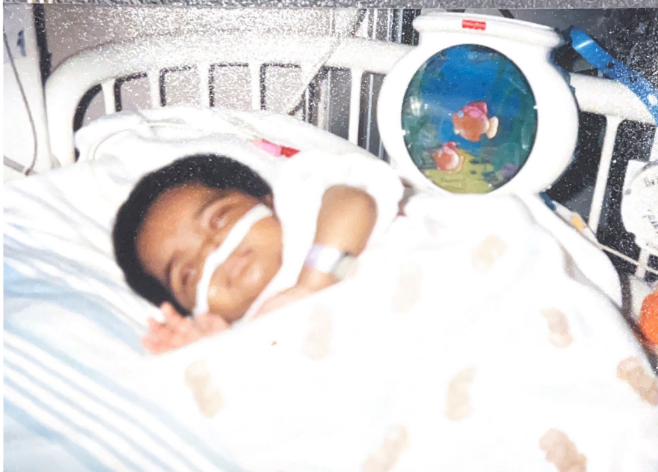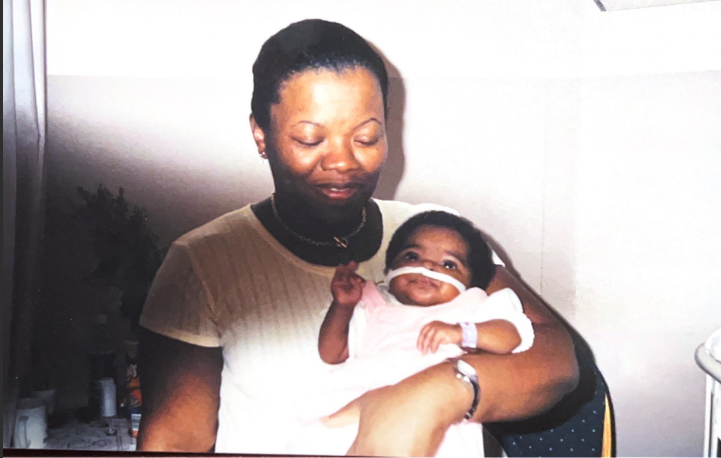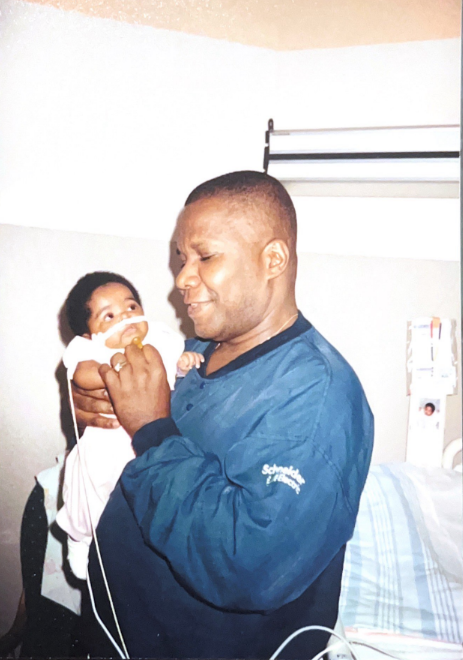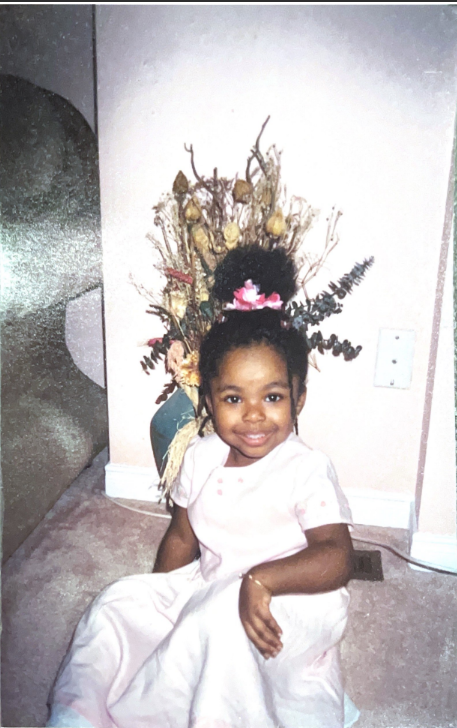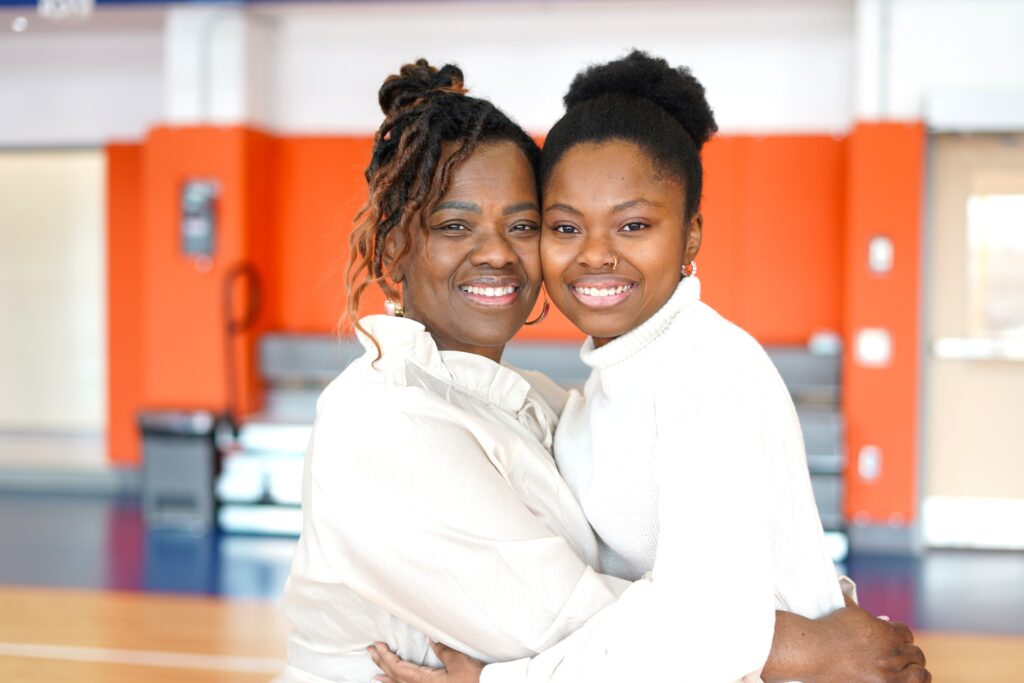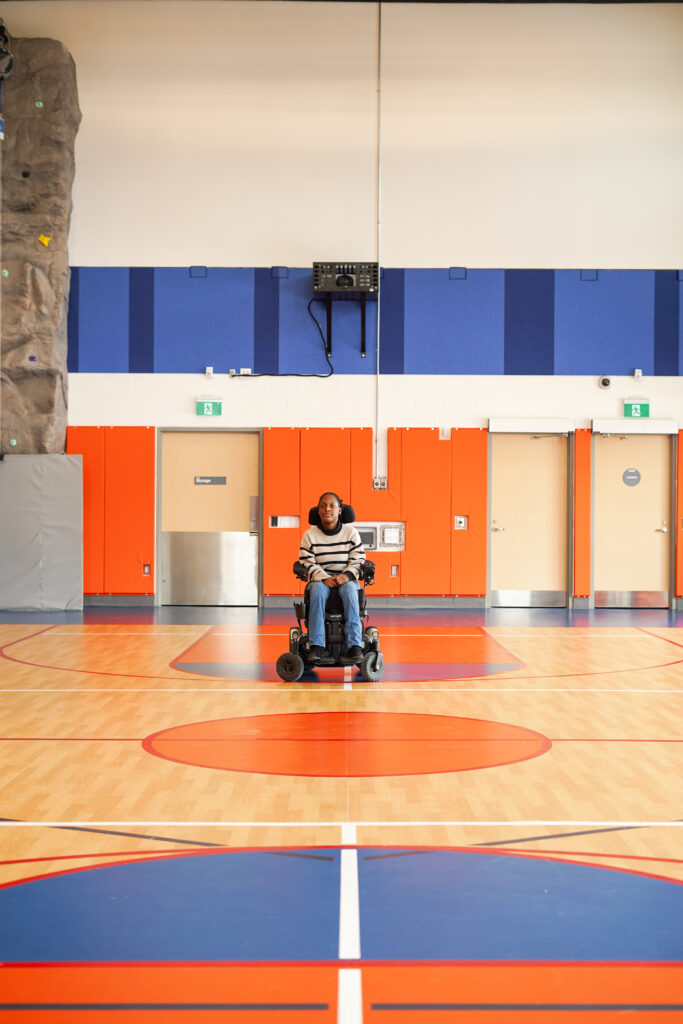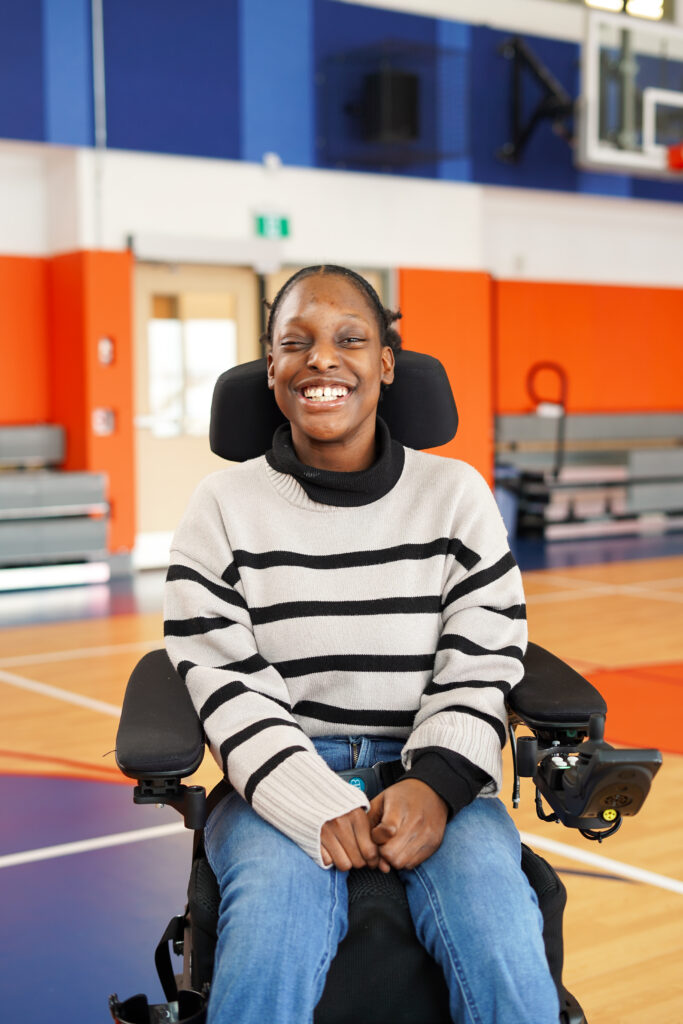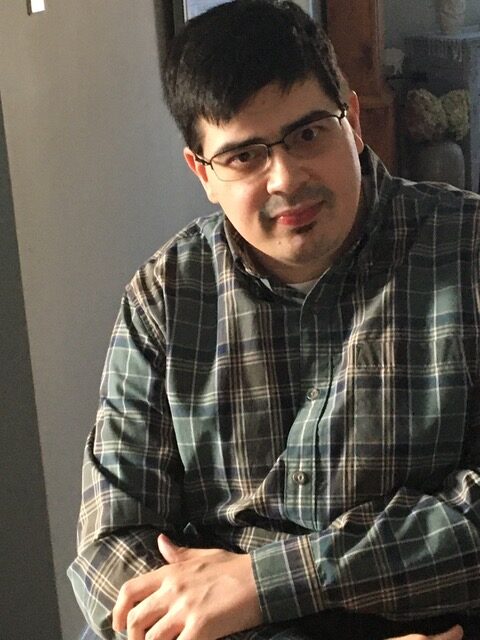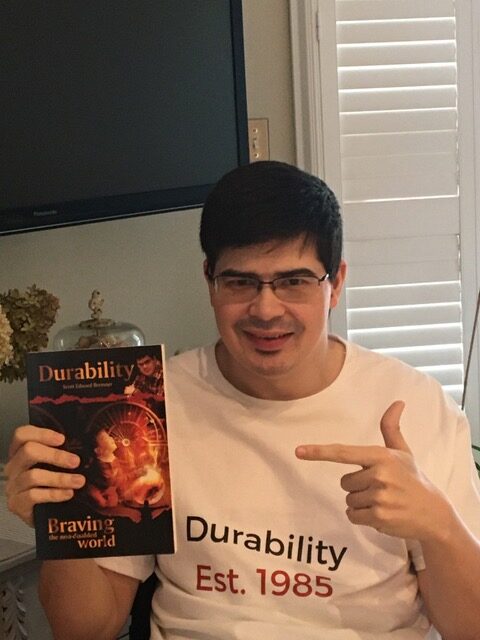Arthrogryposis is a lifelong condition characterized by joint contractures, most commonly affecting the arms and legs. It is often marked by stiffness and a limited range of motion. While the exact cause remains unknown, the condition is typically diagnosed in utero or at birth.
For Monjuri and her 11-year-old son Rudra, arthrogryposis is more than a diagnosis – it’s a journey of resilience, advocacy and hope. Their story is one of transformation, powered by determination and the unwavering support of Grandview Kids.
“When my son Rudra was born, his hands were on his ears, his knees were on his chest, and his foot was folded over his belly button. He looked like a flower that forgot to bloom.” – Monjuri, 2018

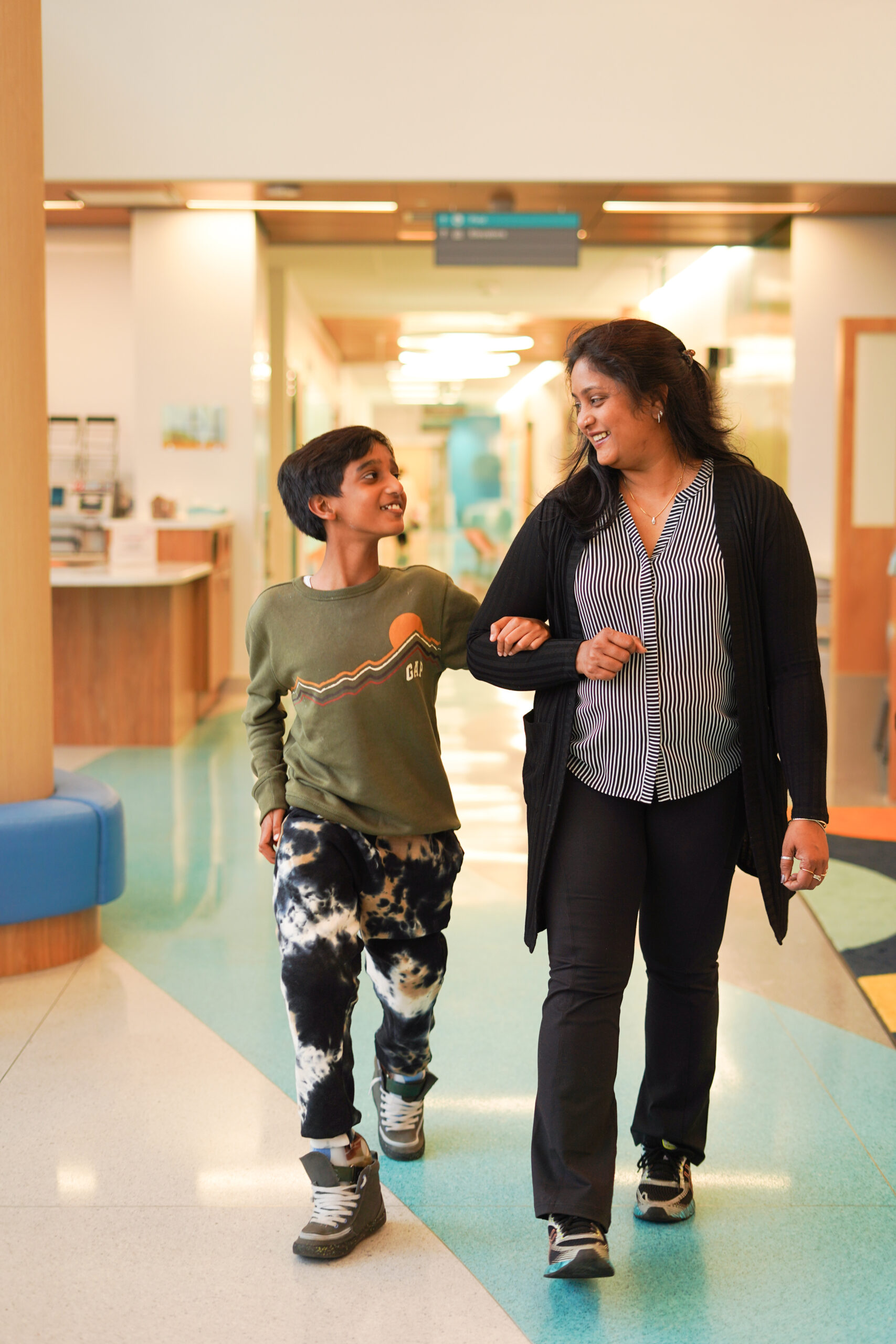
At her 20-week prenatal scan, Monjuri learned that Rudra had club feet. At birth, they discovered he also had contractures in his knees and elbows. What began as a moment of fear quickly turned into fierce maternal protectiveness. “There’s nothing wrong with him. This is who he is,” Monjuri recalls. She remembers thinking Rudra’s habit of sticking out his tongue was just another endearing trait, not yet knowing it was due to low muscle tone. When medical professionals told Monjuri that Rudra might never sit, crawl or walk, she refused to accept those limitations. Alongside her two daughters, she got down on the floor with Rudra, demonstrating how to crawl and cheering him on every step of the way.
Their turning point came when Rudra was referred to Grandview Kids. For the first time, Monjuri felt heard, not just told what her son could not do, but asked what he could achieve. The focus shifted from limitations to possibilities, and that shift made all the difference. At Grandview Kids, Monjuri learned how to advocate for her son. When a hospital doctor dismissed her request for knee ankle foot orthotises (KAFOs), insisting Rudra wouldn’t walk, Grandview Kids’ physiotherapy team encouraged her to fight for him. With the support of casting and KAFOs, Rudra began walking short distances without the need for mobility aids.


Rudra has since benefitted from a wide range of services at Grandview Kids, including Physiotherapy, Occupational Therapy, Recreational Therapy, Speech-Language Pathology and has attended Grandview School. Monjuri fondly remembers how Andrea B., Grandview Kids’ Family Engagement Program Manager, helped her create an “All About Me” book. The book played a vital role in helping Rudra transition to his home school by educating teachers and classmates about his condition and the accommodations he needs.
Arthrogryposis continues to affect Rudra’s daily life. In his early years, he developed painful skin sores and underwent casting to gradually straighten his limbs – a terrifying process for both mother and son. Their Grandview Kids physiotherapist provided helpful information about Shriners Hospital in Montreal, where they self-referred, and Rudra has since undergone five major surgeries. One procedure involved inserting rings into the bones of his legs, requiring bi-monthly visits for five months to realign them. Complications during his July 2024 surgery allowed surgeons to place growth plates in only one leg. In January 2025, Rudra finally received growth plates for his right ankle, where fused kneecaps had previously prevented the procedure. Each time, Grandview Kids has been there, offering essential post-operative physiotherapy to help Rudra regain strength and mobility in a safe, supportive environment.
Now in his preteen years, Rudra is learning the power of self-advocacy. At school, he knows when to ask for help. Through Recreational Therapy at Grandview Kids, Rudra is reminded that he’s not alone. He finds comfort in knowing there are other kids navigating similar experiences and uses his story to educate and inspire his peers. “Sometimes I can’t reach things that are up on shelves or my KAFOs are locked, and I need to wait for an [Educational Assistant] to help,” he shares. His openness fosters understanding, compassion and lasting friendships. “His exceptionalities don’t stop his friends from loving him any less,” Monjuri says proudly.
Though the constant need for advocacy can be overwhelming, both Monjuri and Rudra find strength in knowing they’re not alone. Grandview Kids continues to provide the resources, therapy and even school support needed to keep them moving forward. “Even when I feel advocacy burnout,” Monjuri admits, “I can’t compromise—because I know other kids may need this help too.”

Raising a child with exceptionalities is undeniably challenging, but for Monjuri, it has been a gift.
“I feel blessed to have gone through this journey with Rudra. He is so amazing, and I wouldn’t have known this part of life and the world without him. He is my strength and my courage. When I’m tired and want to give up, I think—if Rudra can do it, I can do it twice over.”
